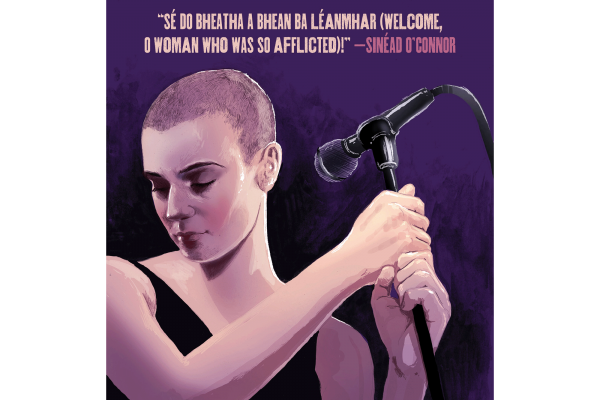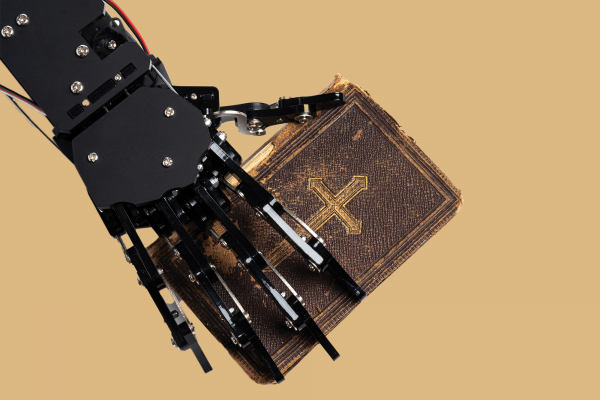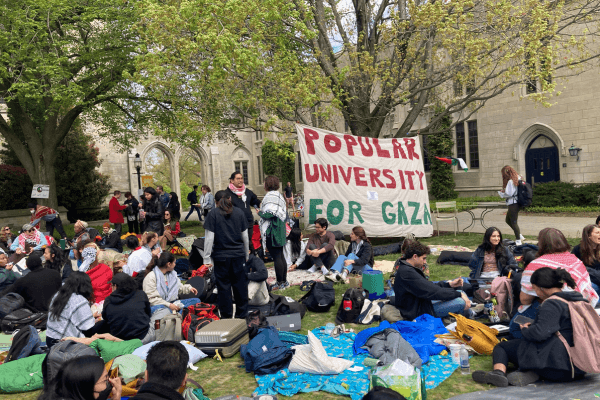Super Bowl 2020 brought some amazing representation. Shakira and Jennifer Lopez put on a halftime show that celebrated Latina culture, and the show made allusions to immigrant children that are still in cages at the hands of President Donald Trump’s policies and the administration’s poor treatment of Puerto Ricans.
But for many Indigenous people, the Super Bowl was another reminder that the collective sentiment of white, settler America is: “Tell the Natives to get over it. We won and we can do what we want with our America now.” Many Indigenous peoples took to Twitter to protest the Chiefs’ tomahawk chop and the numerous white fans wearing headdresses and redface for the game.
We have had this conversation so many times that it feels like we are screaming into a void. Last year my kids’ suburban Atlanta elementary school did the tomahawk chop as an entire student body to celebrate the Braves. Before the Super Bowl, we had to explain to them why we are not willing to re-traumatize them as they see huge groups of people acting on harmful stereotypes.
Michael Friedman, in partnership with the Oneida Nation, published a report on the harmful psychological effects the Washington Redskins mascot has on Native people: “… the ongoing use of a dictionary-defined racial slur above the repeated objections of the Native American community poses serious risk for negative mental health consequences to Native Americans.”
Tara Houska, Ojibwe climate activist and co-founder of @NotYourMascots, shared this on Twitter:
To the Native families explaining to their kids why grown adults are chanting & dressing up as us today: love, strength to you.
— tara houska (@zhaabowekwe) February 3, 2020
We are resilient people with diverse, rich cultures. We survived genocide. We deserve so much better. We ARE so much better.#SuperBowl #NotYourMascot
Like other teams that have mascots that they claim “honor” Indigenous peoples, many Chiefs fans proudly sport their headdresses and tomahawk chops, perpetuating the stereotypes that we are primitive people who either no longer exist or only exist as savage warriors.
And the most difficult and confusing part of it all is that some of these fans are community leaders and pastors. They are everyday people practicing collective white supremacy unwittingly or not — and they are not willing to give up a pastime that survives on the hatred of a group of people. Many of them are the same people who shame black folks and their allies for refusing to stand during the national anthem, sending the message that white supremacy truly is the ultimate American pastime.
So Native Americans write op-eds and tweet about how hurtful these stereotypes are, and we are met with messages of “get over it” and “we are honoring you,” game after game. Often, we get comments about how the sports fans have a Native great-grandmother, so it must be OK.
The Chiefs won the Super Bowl. It’s over. But the discrimination that Indigenous peoples face is not. We will continue to fight to be seen as people who live and breathe in the 21st century, people who have cultures and traditions, people who practice different religions and live all over the world. We are diverse, and yet America sees us as the same savages that the settlers providentially wiped out so that America could be born.
I will continue to wonder not if but how every school that my children attend in the United States will discriminate against Indigenous peoples and perpetuate harmful narratives that hurt the well-being of my children and all Indigenous peoples. The Chief’s tomahawk chop is just a glimpse of what has always been wrong with the narratives we tell in America.
We are in a crisis, politically, religiously, historically — and we won’t solve any of our problems unless we collectively acknowledge who we really are and how we were built as a nation on the genocide of Indigenous peoples and the enslavement of black peoples.
It’s time for America to listen.
It’s time for hard conversations to happen in ways that center the experiences of those on the margins.
Solidarity is more than saying to someone, “I see that this hurts you and your people, but that’s just the way it is.”
Solidarity work is stepping out beyond what is expected and saying to someone, “Because this matters for all of us to be more whole, and I won’t look away.”
Solidarity is the work of prophets and everyday people who know that something is wrong and we get to be part of making it right.
Got something to say about what you're reading? We value your feedback!







